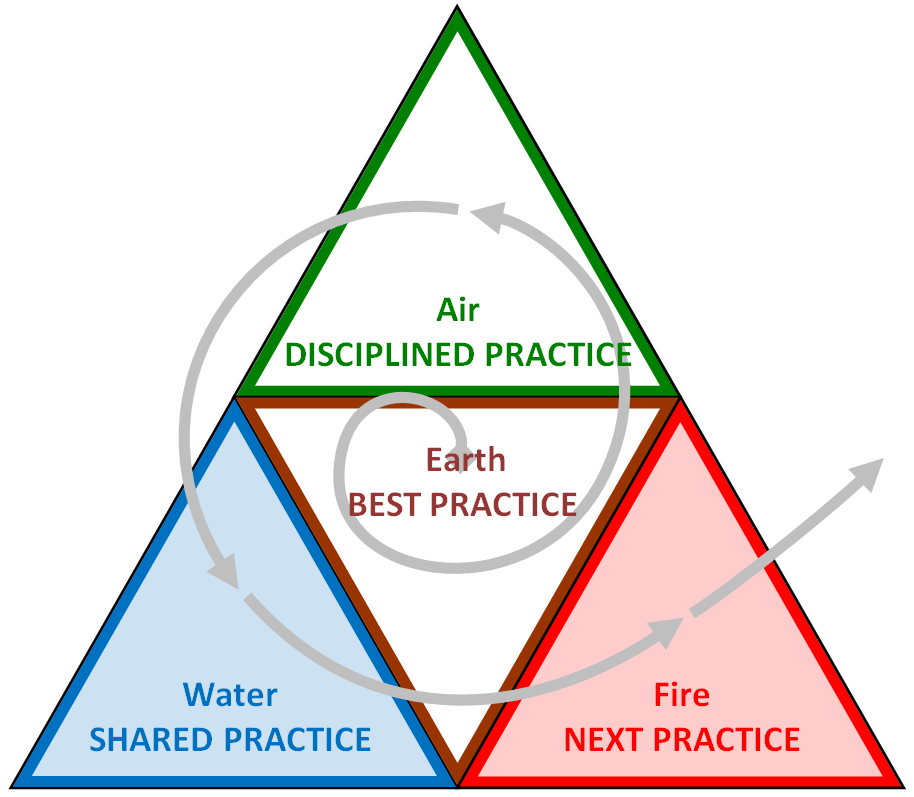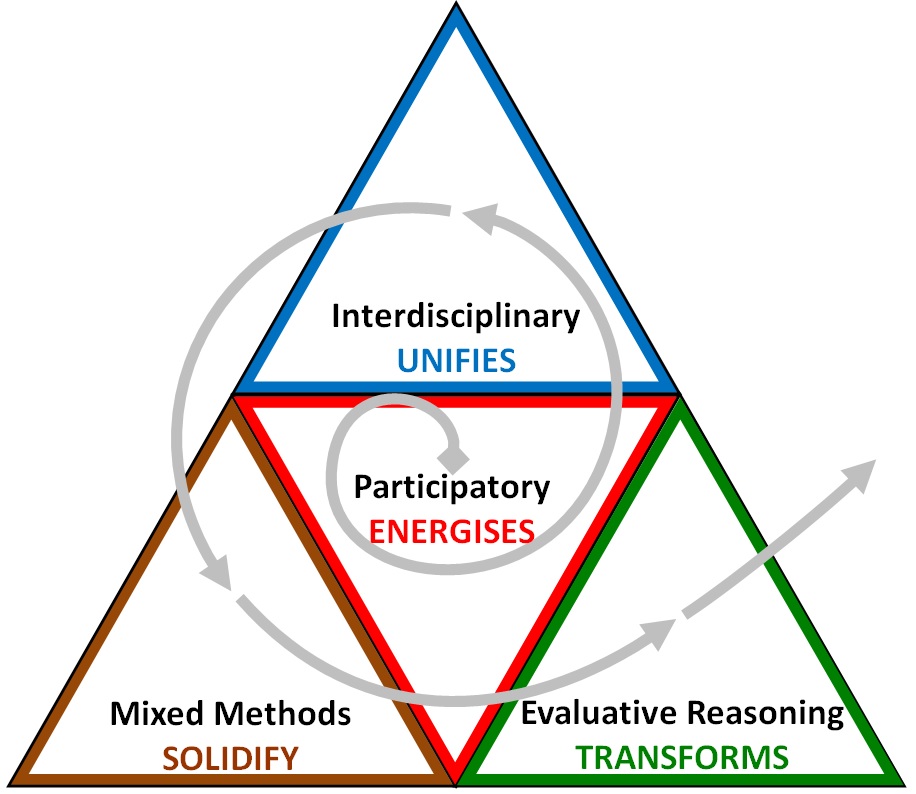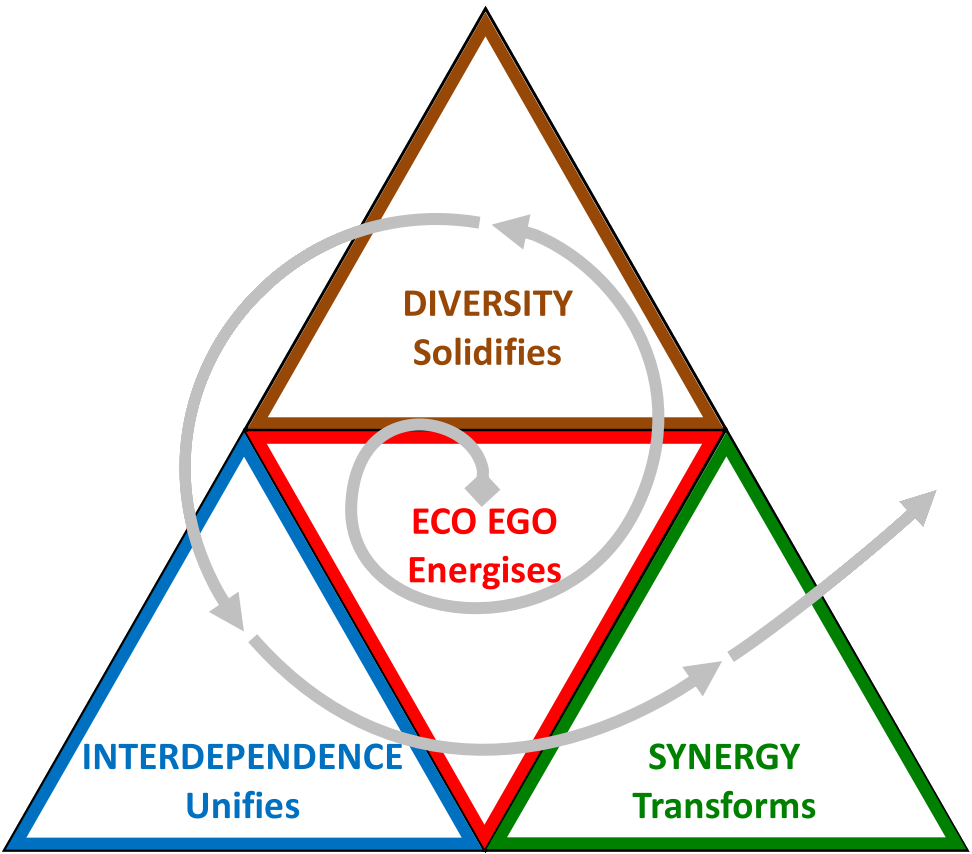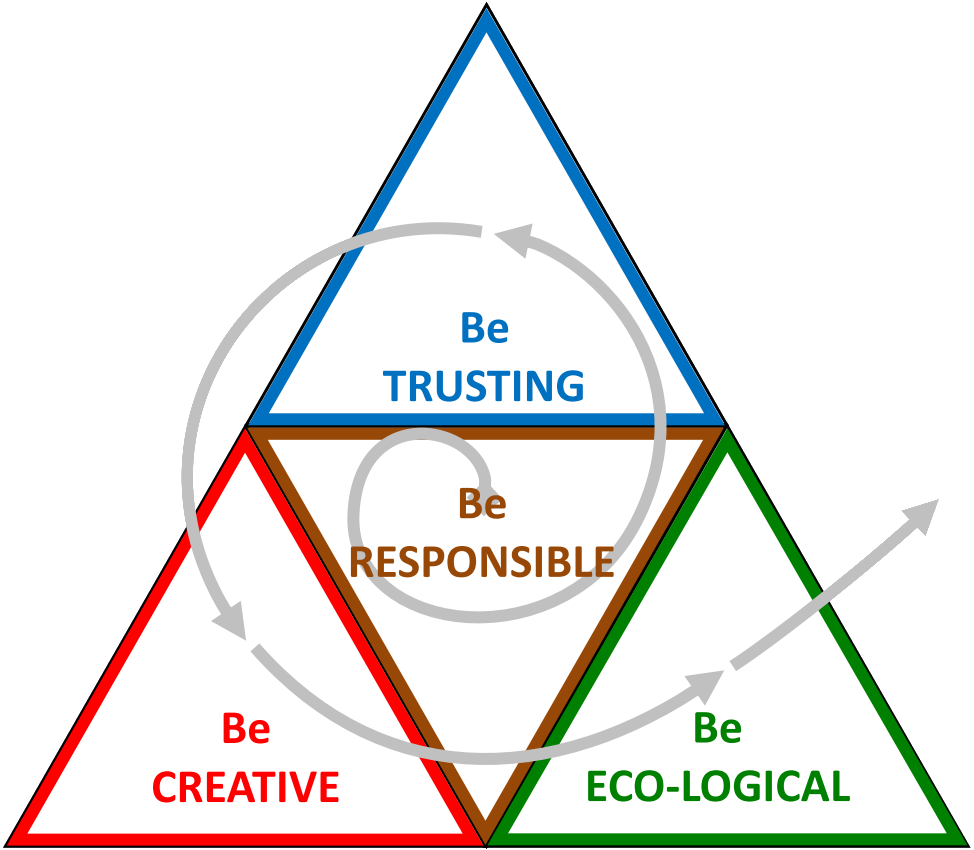Blog Archive Value for Investment, Emergently
Value for Investment, Emergently

Value for Money (VFM) has been the age-old catch phrase for those who sought the best outcome, biggest return-on-investment, the most impressive win. Long before the age of COVID, those who noticed humanity's ethical slippage, sought healthier ways to define 'value', to measure the previously immeasureable. Rather than focussing on money, holistic thinkers measured how one evaluates emergence, the intangible, the metaphysical.
With ever-increasing acknowledgement and gratitude given to AI (Ancestral Intelligence) and Nature, the concept of value-for-money is shifting to the very much needed understanding of value-for-investment.
Value for Investment (VfI) was developed by Julian King based on his doctoral research and is an excellent, holistic approach that aligns well with Emérgéntly's Shared Practice and Next Practice... areas of high complexity and uncertainty. Best Practice and Disciplined Practice are seldom enough in todays' uncertainty. Let's learn to share more and leap into uncertainty with Ancestral Intelligence and reignited creativity and trust.
VfI Principles
 Julian King explains that the VfI system is underpinned by four principles:
Julian King explains that the VfI system is underpinned by four principles:
• Interdisciplinary (integrating theory and practice from evaluation and economics)
• Mixed Methods (combining qualitative and quantitative evidence)
• Evaluative Reasoning (interpreting evidence through the lens of explicit criteria)
• Participatory (engaging stakeholders in evaluation co-design and sense-making)
Applying an Emérgéntly spiral:
- A Participatory approach engages and Energises stakeholders from the beginning.
- An Interdisciplinary approach, Unifies the diverse stakeholders.
- Mixed Methods, Solidify the approach in both qualitative and quantitative measurement.
- Evaluative Reasoning Transforms intentions into explicit criteria for agreed, meaningful sense-making.
 Valuing Emergence
Valuing Emergence
How do we value the emergence of Synergy, where the whole is greater than the sum of the parts and therefore unpredictable? How do we come to understand the parts of a new system? Typically we value what appeals to our ego. The shift comes with valuing the benefits to the system within place (larger system). Understand the logic of the place, in order to be eco-logical and to develop a more Eco Ego.
Using the four sided tetrahedron as a metaphor for synergy, we can can show that one triangle, plus one triangle creates 4 triangles, but only if the two triangles hinge differently and then connect. Diversity (of hinging) and Interdependence (each triangle depending on the other to work together) are prerequisites for Synergy. Thus, although synergy cannot be predicted, we can predict that it is more likely to happen if we encourage diversity and interdependence. If we value collaboration and co-creation, we can trust that synergy will emerge.
Eco-Centric Values
 Long-term strategies should also anticipate the emergence of precession, or side effects, often called unintended consequences e.g. pollution. Positive precession is often called serendipity or synchronicity. Even though it is almost impossible to predict precession, we can confidently expect precession as a natural part of evolution, and therefore intentionally hope for serendipity. Also, precession often affects the wider context more than the specific program, as when the bee hunts for food, it precessionally pollinates the flowers.
Long-term strategies should also anticipate the emergence of precession, or side effects, often called unintended consequences e.g. pollution. Positive precession is often called serendipity or synchronicity. Even though it is almost impossible to predict precession, we can confidently expect precession as a natural part of evolution, and therefore intentionally hope for serendipity. Also, precession often affects the wider context more than the specific program, as when the bee hunts for food, it precessionally pollinates the flowers.
Of course, we should Be Responsible for our own actions, but can we also be responsible for the emergence of both positive and negative precession, especially as they can have far greater impact than our original intentions? To hope for positive precession in the wider context, we must Be Trusting in Nature and in the human nature of our collaborations. To be regenerative, we must also Be Creative and Be Eco-Logical, based on the logic of the place/context/system.
 Beyond Think Global, Act Local
Beyond Think Global, Act Local
There is now an imperative to spiral success stories for regenerative growth (in quality, and probably not in quantity). In Next Practice especially, we learn from past mistakes, so the first imperative is to Learn Global. To limit the potential for negative precession we then Act Local and learn what works. The ego might be satisfied with local success, but an eco ego is energised to aim much higher. Today, local does not have to be geographical, so we use eco-logic to Redefine Local and identify where else any new learning could apply. Finally, to be truly transformational, we ensure the learning is shared and Impact Global.
Emergence and Evaluation
If we value emergence and assume responsibility for emergence, we need to manage and measure it. Julian King's article on Evaluative reasoning in complexity gives an example of how to accommodate emergence of unplanned positive outcomes, integrated with evaluation of expected outcomes. However, there is the potential to retrospectively evaluate unplanned outcomes independently, and to anticipate this in evaluation proposals.
Next: 2024 Emerges Gently
Nature spirals, peace emerges gently. Let's be more eco-logical in 2024.

